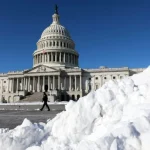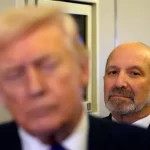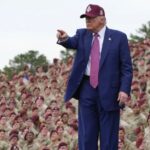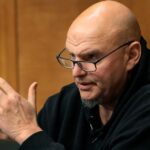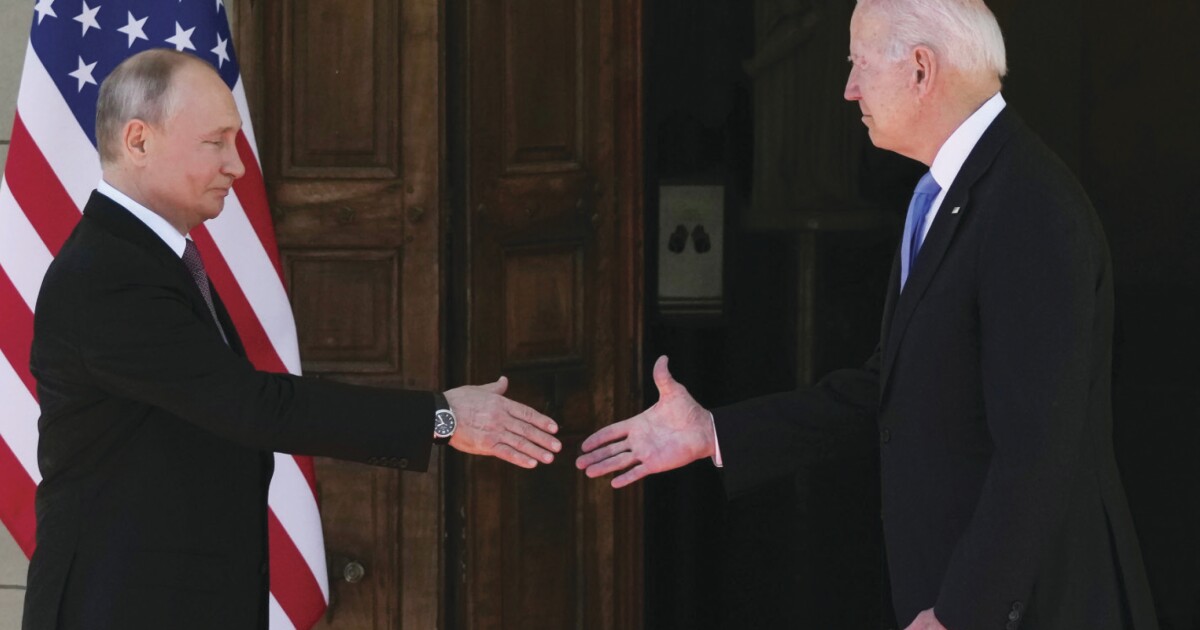

Russian President Vladimir Putin’s recent nuclear saber-rattling has not only unnerved the West. It has upset what’s known as “the world nuclear order,” a series of arms control agreements that undergird an international consensus that the use of nuclear weapons is to be avoided at all costs.
Putin’s not-so-veiled threats that Russia, if losing in Ukraine, might consider employing a “mini-nuke” to regain likely leverage deals a fatal blow to the notion nuclear weapons will be constrained with any new treaties.
Putin’s pronouncements, along with his doctrine of “escalate to deescalate,” have also eroded the Cold War-era concept of “MAD,” or mutually assured destruction, the deterrence construct that has helped make the idea of nuclear war unthinkable since the end of World War II.
“He’s blown up the global nuclear order that has been developed over the last 70 years, for the most part by the United States and Russia,” writes Siegfried Hecker, a former director of Los Alamos National Laboratory, in the Bulletin of the Atomic Scientists.
“That order has helped to allow the world to take advantage of the benefits of nuclear energy — such as nuclear electricity and nuclear medicine — while avoiding the worst potential consequences, everything from nuclear weapons use, to lots of countries seeking nuclear weapons.”
Last summer, when President Joe Biden met with Putin in Geneva for the first time as president, he said his goal was a “predictable, stable” relationship with Russia, despite its interference in the 2016 election, its SolarWinds cyberattack on U.S. federal government agencies, and its ominous troop buildup around Ukraine.
As an olive branch of sorts, upon taking office in 2021, one of the first things Biden did was extend for five years the 2010 New START treaty, which caps U.S. and Russian strategic nuclear arsenals at 1,550 deployed warheads, something former President Donald Trump had refused to do.
Trump and his advisers, including Secretary of State Mike Pompeo and national security adviser John Bolton, saw most Cold War-era arms treaties as anachronisms, increasingly irrelevant in a world where there were no longer only two major superpowers.
In 2019, Trump withdrew from the landmark 1987 Intermediate-range Nuclear Forces Treaty, which Russia was routinely violating, and the next year from the 2002 Open Skies Treaty, which allows for aerial surveillance of military facilities, something these days mostly done by satellite.
New START is the last arms control agreement still standing. Still, the Trump administration saw little benefit in renewing it, given Russia’s aggressive effort to circumvent its provisions with a vast array of new delivery systems, including its new heavy-duty Sarmat intercontinental ballistic missile (dubbed Satan-2 by NATO), which after a test-launch last month, Putin warned should “provide food for thought” for anyone threatening Russia.
Russia’s ever-expanding nuclear-capable arsenal includes the Avangard hypersonic glide vehicle, “Skyfall,” a nuclear-powered cruise missile, and “Poseidon,” a nuclear-powered, long-range torpedo.
But for Trump, the bigger problem with the Obama-era treaty was that, as a bilateral agreement between the U.S. and Russia, it did nothing to limit the rapid growth of China’s nuclear arsenal, once thought to number 300 nuclear warheads but now believed to be on a pace to grow to 1,000 before the decade is out, according to the Pentagon’s latest report on Chinese military power.
Trump left office unable to get China and Russia to agree to discuss a future three-way arms agreement, and the incoming Biden administration justified the extension of New START as a way to buy more time to seek a broader trilateral deal.
That all seems like a pipe dream now that Putin describes his “special military operation” in Ukraine as a wider war against the U.S. and the West.
In the past two months, Putin has put his nuclear forces on high alert and threatened “lightning-fast” retaliation with “tools … the likes of which no one else can claim” if any outside power interferes in his unprovoked war in Ukraine.
“This is the greatest challenge for the security of Europe since the end of World War II. And, indeed, you can easily make the case that what’s at stake is the global international security order that was put in place in 1945,” said Joint Chiefs Chairman Gen. Mark Milley on CNN last month.
For decades, nuclear deterrence was seen as the key to keeping the peace among the superpowers and preventing a Third World War.
“It’s prevented great power war, and underlining that entire concept is the idea that large nations will not conduct military aggression against smaller nations,” Milley said.
But Russia has flipped the script, using the threat of going nuclear to keep the U.S. and NATO at bay in Ukraine while his undisciplined military kills and terrorizes civilians, levels cities with brute force, and inflicts widespread devastation by launching more than 2,000 missiles.
“If Russia gets away with this cost-free, then so goes the so-called international order,” Milley said. “And if that happens, then we’re heading into an era of seriously increased instability.”
Earlier this year, Russia was one of five nuclear-weapon states including China, France, the United Kingdom, and the U.S. to sign a renewed pledge declaring “nuclear war cannot be won and must never be fought.”
In an April 25 interview on Russian television, Foreign Minister Sergey Lavrov claimed it was Russia that pushed for the group statement, which was a reaffirmation of a pledge made by Presidents Mikhail Gorbachev and Ronald Reagan in 1987.
Lavrov said there had been “two useful rounds of talks” with the Biden administration last year about what might replace New START when it expires in 2026 but that the U.S. “canceled almost all contacts” after February.
Now, Lavrov calls the risks of nuclear war “quite high.”
“I would not like to see them blown out of proportion,” Lavrov said, but then added ominously, “This threat is serious and real. It must not be underestimated.”
In response, President Joe Biden called the Russian rhetoric “irresponsible.”
“No one should be making idle comments about the use of nuclear weapons or the possibility that they’d use that,” he said.
Russia isn’t the only one engaging in loose talk about using nuclear weapons.
Since the collapse of denuclearization talks during the last year of the Trump administration, North Korean leader Kim Jong Un has been making increasingly bellicose statements about not only building up his arsenal of missiles and warheads but also the preemptive use of nuclear weapons if he feels threatened.
The North Korean leader was quoted by the Korean Central News Agency this month as telling his senior military officers that they may consider the use of nuclear weapons “to preemptively and thoroughly contain and frustrate all dangerous attempts and threatening moves.”
In a speech at a military parade in Pyongyang a week earlier, Kim vowed to “take measures for further developing the nuclear forces of our state at the fastest possible speed.”
But it’s Russia, not North Korea, that is the key to any future nuclear arms control treaty.
“Russia may have also delivered the death knell to arms control, which has already been on the ropes over the past 20 years — being diminished by both Russian and American governments,” Hecker said. “It’s going to be difficult to see how we’re going to live with an international system, where we have a formerly responsible nuclear state that’s now become a pariah state — a country we can no longer count on to be responsible in nuclear matters.”
Before the Ukraine invasion, Russia was the leader in foreign nuclear power plant construction and in providing nuclear fuel services, its biggest high-tech export.
“Now that Russia has shelled the Zaporizhzhia operating nuclear plant in Ukraine and had its soldiers overrun the Chernobyl radioactive exclusion area, what country is going to have Russia build it a new nuclear power plant?” Hecker asked.
“On the issue of nuclear power, what he’s really done is he’s shot himself in the foot.”
Jamie McIntyre is the Washington Examiner’s senior writer on defense and national security. His morning newsletter, “Jamie McIntyre’s Daily on Defense,” is free and available by email subscription at dailyondefense.com.


